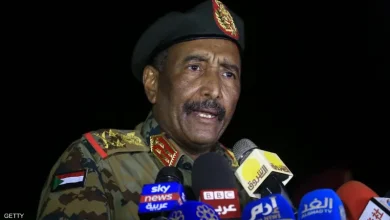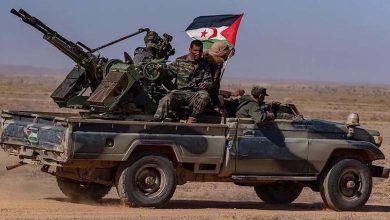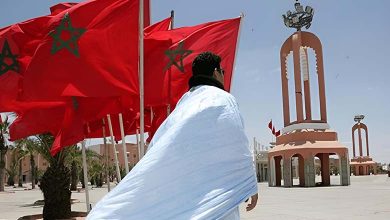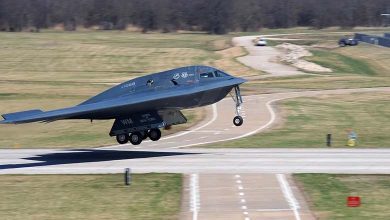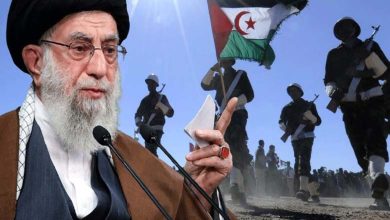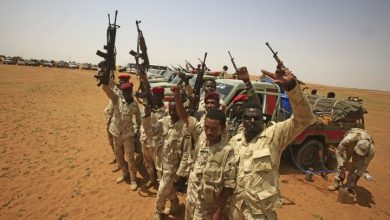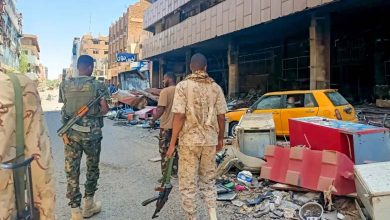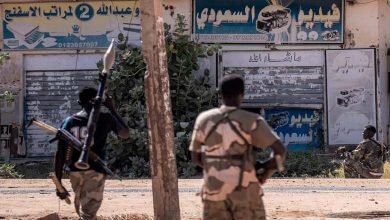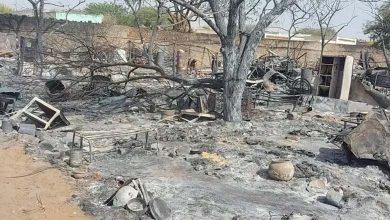Al-Bashir’s supporters are participating in the battles alongside the Sudanese army
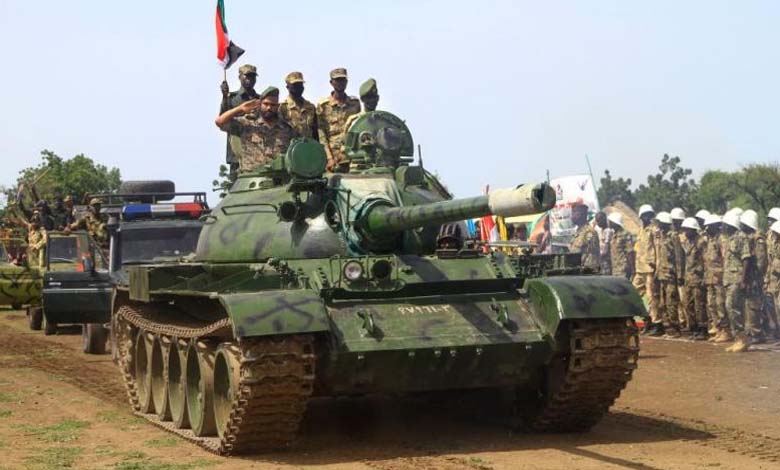
Member of the Central Council of the Alliance for Freedom and Change, and Assistant to the leader of the National Umma Party, Sadiq Siddiq Al-Mahdi, accused the critics of the Stop the War supporters of continuously clinging to it ‘out of fear of harming their interests’ and absolving themselves of responsibility for the war by attributing it to the ‘civil forces working on institutional reform for the state, which blocks their path.’
Al-Mahdi stated that the dispute is not with ‘supporters of the ousted regime of al-Bashir,’ the main enemy, but rather with the civil forces seeking institutional reform for state institutions, including the security forces, which threaten their empowerment and investments, as well as the looting of the country’s resources.
Al-Mahdi revealed that civil forces are close to ‘forming a broad civil front’ aimed at ending the war, composed of civil, political forces, resistance committees, professionals, independent figures, and they have agreed to a communication committee to facilitate the necessary communications for declaring the front and holding its conference in the Ethiopian capital Addis Ababa.
He explained that the ‘ousted regime and its supporters have ignited the war and are working to continue it and stand against its cessation in order to return to power through various channels and open new avenues for corruption. That is why they supported the October 25, 2021 coup, and then they launched the disastrous war in mid-April last year to block any civil democratic transition that contradicts their interests’.
Al-Mahdi described the allegations made by the supporters of former President Omar al-Bashir against the civil forces as ‘treason,’ and said that those who call for the continuation of the war are individuals whose interests have been affected by its cessation, adding that ‘the supporters of the National Congress Party, and Islamists in general, as well as those who previously held power, are the ones who ignited the war and want to continue it.’
Al-Mahdi denied the existence of a major problem between the National Congress Party (the ruling party during the al-Bashir era) and its supporters, and the Rapid Support Forces. ‘Because they created and empowered them to share power and empowerment with them, to return through their gates in various forms,’ emphasizing that ‘their real problem is with the political forces advocating for reform. They want to preserve their suspicious interests, their empowerment, the looting of the country’s resources, and to reopen the doors of corruption wide. That’s why they ignited the war and are determined to continue it, which is the direct reason for the remnants of the ousted regime’s attack on civilians.’
Al-Mahdi accused the remnants of the Omar al-Bashir regime and their loyal military elements of ‘wasting huge amounts ranging from 6 to 9 billion dollars annually. Sudan produces between 120 and 200 tons of gold annually, of which the state receives only about 20 to 30 tons, with the rest being wasted through smuggling.
He explained that the elements of the Omar al-Bashir regime are seeking to preserve these interests, and said that ‘they supported the October 25th coup to block the path of economic and military institutional reforms, and they exacerbated the situation by igniting the futile war and working to continue it, driven by their hostility towards the civil forces advocating for a civil democratic transformation and institutional reform for the Sudanese state.’
No partnership with the military
Al-Mahdi firmly rejected the possibility of establishing a new partnership between civilians and the military in the upcoming phase, stating, “They have acknowledged that they will not be a part of the political scene. If they are sincere and serious, their actions, starting from the era of Omar al-Bashir‘s regime through the transitional period and up to the senseless war and the resulting disasters, make us press for and agree that they commit to what they obligated themselves to in the framework agreement, by refraining from engaging in politics, economics, and investments.”
He viewed the continuation of the war as a threat to pushing the country towards the tragedy of a civil war, turning Sudan into a focal point and source of disasters in the world and the region. He interrupted by saying, “The right path to end the war is by elevating the voice of Sudan‘s interests, and besieging the claims of those who ignited the war and those who benefit from its continuation.”
According to Al-Mahdi, the war has “caused suffering for civilians in Darfur, especially in the west, forcing many of them to seek refuge in neighboring countries under extremely tragic circumstances, and those who remained in Khartoum are also suffering from the harsh living conditions and the scarcity of the essentials of life.”
Al-Mahdi described the decision of the Human Rights Council to establish a fact-finding committee on violations in Sudan as “a commendable decision,” simultaneously affirming that the consequences of the senseless war fall on civilians, and that the military leaders continue their war without consideration for the destruction of the country, the killing of civilians, and relief workers. This has led to Sudan being ranked as the second most dangerous country for relief workers, where 19 relief workers were killed in a single year, according to a United Nations official.
He expressed his conviction that the decision of the Human Rights Council will expose the perpetrators of violations, put an end to the disputes between the two parties, and prevent one party from accusing the other. He continued, “This is an independent achievement supported by the expertise and financial capabilities of the Human Rights Council,” calling for the involvement of Sudanese individuals with “experience, competence, and qualifications in forming a fact-finding committee to make it a national and international committee capable of conducting an independent and transparent investigation to identify the violations, reveal those responsible for them, hold accountable those who caused them, and contribute to achieving justice for the victims and establishing the foundations of transitional justice.”
He called for the establishment of precise and technical mechanisms to compensate the victims of violations, based on a methodology that relies on scientific auditing processes to determine what the victims have lost. He emphasized that aggressive actions and violations against civilians did not start with the current war but began with the June 1989 coup that empowered Islamists, leading to genocide, war crimes, torture, killings, looting the country’s resources, and eventually killing and violating the rights of peaceful revolutionaries in the operation to disperse the sit-in at the General Command, leading up to the current war.
The military is responsible for the crime of dispersing the protest
Responsibility for these violations is attributed to both components of the military, and this is a matter that should be subjected to investigation. I hold the Transitional Military Council fully responsible because the army claims it did not disperse the protest. However, the crime happened in front of its overall leadership, and it is their duty to protect civilians. At the very least, they are responsible for negligence,” adding that “Sudanese civilians have suffered numerous violations by the military component, culminating in this war that they themselves described as futile.” Al-Mahdi emphasized that civilians are not against the military and the Sudanese army, but they are working towards institutional reform in the country by establishing a military institution that does not serve a political agenda. He continued: “This is the task of all Sudanese components, to have a single professional national army that works to protect the homeland and its citizens. These are the tasks that must be agreed upon to move out of the war and enter into a civilian transition period. Therefore, there is a need for a clear civilian voice in reforming the institutions, including the security forces.”
Al-Mahdi promised that the continuation of the war “will not achieve positive results for either side, let alone the country.” He said, “Even if the war were to occur outside the cities, civilians would intervene to stop it, because it drains the lives of Sudan‘s people, depletes the country’s resources, and threatens its unity.
Warning of a civil war
Al-Mahdi warned of the widening scope of the war and its transformation into a civil war, saying, ‘Every side is now rallying with social components loyal to it, and this trend may lead the country to slide into a civil war that threatens its division.’ He continued, ‘Therefore, one must stand, and the civilian voice must prevail in expressing the necessity of stopping it, and this is what we are working on now, through unifying this civilian voice.’
In the face of the clear division among civilians, Al-Mahdi emphasized that uniting the civilian front is a significant step, explaining that ‘there is a faction that believes that ending the turmoil in the country and military divergence can only be achieved through armed action, but this faction has significantly receded, and the call to stop the war has gained momentum.’
Al-Mahdi insists on the importance of uniting the civilian front to address the military, urging them to ‘prevent the country from a civil war that threatens its division if each side declares a loyal government in its controlled areas.’ He believes that ‘stopping the war means putting an end to destruction and death, opening the door to helping people and halting their severe suffering, addressing civil and military differences peacefully, providing humanitarian aid to the affected, and launching a political process that moves the country toward a comprehensive agreement that eliminates all causes of wars and addresses the roots of the crisis to make the current war the last of its kind.’
Efforts to form a civil front
Al-Mahdi attributed the delay in civil consensus to objective and internal reasons, stating, ‘Achieving consensus and unifying civil forces has taken a long time due to objective and internal circumstances, including the difficulty of communication among civilians and the presence of large groups within the country.’ Referring to the meeting of the ‘Democratic Bloc,’ which supported the October coup in the Eritrean city of Asmara, Al-Mahdi said, ‘They issued a statement that did not effectively address the issue of ending the war, and they adopted a stance that essentially reproduces their previous position without reflecting on the war experience. They called for a partnership with the military and the formation of a sovereignty council of 9 people led by the military with civilian participation, and this was their vision before the war.’ He added, ‘This is a civilian perspective, and despite our differences with it, we respect their direction and opinion.’
Al-Mahdi revealed ongoing efforts to crystallize a broad civil front, an extension of the civil front announced on April 27th last year, initiated by the ‘Committees of Resistance of Al-Haj Youssef.’ He stated that it is ‘a front that includes resistance committees, political forces, civil society organizations, labor unions, professionals, independent national figures, and their coordination was held in Addis Ababa with a meeting on September 17th and 18th last year.’ He further explained that the civil groups ‘agreed to establish a communication committee to engage with civil components and non-aligned armed movements in the April declaration and to renew communications with the components that have slowed down the front’s work and formed other initiatives’.
Al-Mahdi appeared optimistic about ‘the agreement of civil parties to form a broad and expanded front,’ stating, ‘I can say that there are signs of achieving broad civil consensus, and we are on the verge of a truly broad civil front, composed of supporters of ending the war, and it aligns on a clear vision for providing aid to citizens, elevating the civilian voice, and making it transparent and pronounced.’ He continued, ‘People will see this front and objectively assess its actions.’



